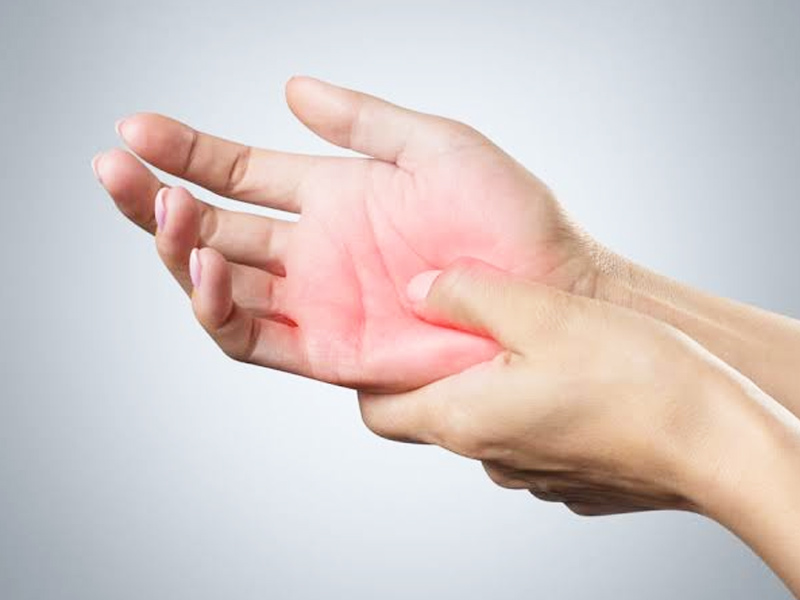
Arthritis literally means a disease causing painful inflammation and stiffness in the joints. The term arthritis includes Osteoarthritis, Rheumatoid Arthritis(RA), Psoriatic arthritis, Ankylosing Spondylitis, Gout, Systemic Lupus Erythematosus amongst many others. Worldwide, the prevalence of Rheumatoid Arthritis is 1% and in India the prevalence is 0.75% which is upwards of nine million affected by RA alone. Onlymyhealth editorial team talked to Dr. Aneesa Kapadia, Consultant Rheumatologist, Masina Hospital, Mumbai, DNB (General Medicine), MRCP UK, SCE in Rheumatology, to know about arthritis.
Table of Content:-
Things to know about arthritis
According to Dr. Aneesa, here are 7 things you should know about arthritis:
1. How to diagnose and treat arthritis early and effectively?

Rheumatic conditions have been around since a long time and one can even find it in Ayurvedic texts. Arthritis causes major morbidity issues, poor quality of life and affects a person's productivity, leading to loss of livelihood and increasing the socioeconomic burden in our society. The window to detect and treat arthritis early is from 3 to 6 months.
2. What are the early signs of Arthritis?
The early symptoms of arthritis include pain and stiffness in the joints, especially in the early morning hours. Fatigue and low grade fever can also be present along with weight loss. Often these symptoms are wrongly diagnosed as vitamin deficiency, hormonal changes (especially in women) or because of elevated uric acid levels. When in fact the diagnosis may well be RA, Spondyloarthritis, Psoriatic arthritis or even more serious conditions such as Lupus.
Also read: Arthritis Awareness: Joint Problems And Various Cures And Precautions To It
3. Who should you consult if you have these symptoms?
As with most diseases arthritis is best treated if diagnosed early. The joint deformities that one associates with RA occur over many years only if the disease is poorly controlled. Unfortunately, even today many patients are diagnosed late. This happens because of lack of awareness in the society. .For early diagnosis an accurate history and clinical examination are far more important than blood tests and X rays or MRI’s. A Rheumatologist or doctor who treats rheumatic conditions would be the right person to diagnose these conditions and interpret the clinical signs and investigation results.
4. Are there effective treatment options for Arthritis?
Over the last century treatments for arthritis have evolved tremendously and newer medications are now available that prevent joint damage and thus drastically reduce any chances of long term disability or handicap.However medications will work only if the correct diagnosis has been made.

Treatment options are varied and choice of medication should be individualised based on the needs of the patient. Even if first line medication does not work, other options are now available including generic and affordable solutions.
5. Does Arthritis treatment include steroids?
Newer advances in treatment of Rheumatic conditions have dramatically reduced the need for steroids. These days steroids are prescribed rarely and avoided where possible. However there are instances where patients often take steroids inadvertently (without their knowledge) either in medication dispensed over the counter or as part of alternative treatments.
6. What else can one do besides taking medications?
Besides medications it is important to exercise regularly. This can be any form of exercise that is best suited to your physical capacity and functionality. Research shows that regular exercise can help control joint inflammation and reduce the need for long term medications. Exercise helps prevent other health conditions such as Diabetes, Hypertension and Obesity and thus ensures overall health and well being.
Also read: Avoid These 7 Foods If You Have Arthritis
7. Is there no cure for Arthritis? Do medications have to be taken life long?
Although there is no cure for arthritis there are excellent options to control the disease. Diseases like Diabetes, Hypothyroidism or Hypertension also do not have any cure. Medications help to control the disease and the doses can be reduced over a period of time once patients are better. Often patients get better naturally over a period of time and remain well on low doses of medications often called “Disease Remission”.
Also watch this video
How we keep this article up to date:
We work with experts and keep a close eye on the latest in health and wellness. Whenever there is a new research or helpful information, we update our articles with accurate and useful advice.
Current Version